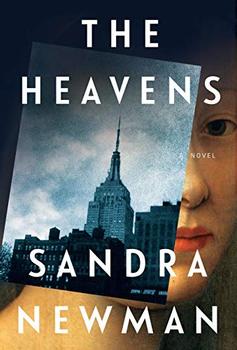Summary | Excerpt | Reviews | Beyond the book | Read-Alikes | Genres & Themes | Author Bio

I've never kept a journal, but my mother has written in hers for years, the annual volumes she's written since high school now take up space in a plastic tote under her bed. I've never seen her take out old volumes and reread them—except sometimes in order to arbitrate a family dispute. (Was that trip to Colonial Williamsburg in 1987 or 1988?) What compels someone to keep a journal of one's experiences—and what might we learn about our past selves if we had the opportunity (and the courage) to really engage with the person we were years or decades ago? These are just some of the compelling questions raised by Siri Hustvedt's new novel Memories of the Future.
On the surface of things, the narrator's life story bears a great resemblance to the author's. They even share the same initials. The narrator, known as S.H. (or as "Minnesota" to the friends she had just post-college), is in the process of helping her mother, who is in her mid-nineties and has dealt intermittently with poor health and failing memory, move to a smaller unit in an assisted living complex. During the moving process, S.H. discovers a notebook in which she documented her post-college move to New York City some forty years earlier in 1978.
As S.H. reads through the notebook (as well as the unfinished mystery-novel-within-a-novel her aspiring-writer self penned during the same year), she reflects on the aspects of her memories that have remained clear, those that had been entirely forgotten, and those that have transmuted over time. "What am I looking for? Where am I going?" she muses, as she considers the interplay between invention and memory. "Am I vainly searching for the moment when the future that is now the past beckoned me with its vast, empty fact, and I cowered or tripped or ran in the wrong direction?"
The central drama of young Minnesota's first year in New York City is the mystery of her next-door neighbor Lucy, whose late-night chanting and seemingly random utterances appear to hint at past violence and possible plans for future revenge. Minnesota, who notes that she shares her S.H. initials with Sherlock Holmes) can't resist a good mystery—that's the genre she's writing, after all—but when an act of violence causes her to encounter Lucy in real life, she's unsure how to square her preconceptions with her new realities.
Past, present, future; imagination, reality, memory—these are concepts that are fluid, as the narrative flows easily between S.H.'s present-day recollections, excerpts from her 1978 journal, and passages from her erstwhile novel-in-progress. These are big topics, to be sure, and Hustvedt gives readers plenty of big questions to wrestle with. But young Minnesota's story is also a more straightforward narrative of a woman who moves from a small town in the Midwest to the big city knowing literally no one, who spends a year questioning what kind of writer she wants to be and what kind of community she hopes to create for herself. Memories of the Future is also at times very funny, if in a caustic way, such as when S.H. reflects on what she remembers of her dealings with men at that time:
The many have been conflated in my mind to become one, one sort of man I encountered again and again, a man, younger or older, whose eyes continually strayed from my face to parts below, a man who talked and talked and talked and asked me no questions, a helpful, smiling, knowing man who for reasons that baffled me seemed to believe I was incompetent in all matters large and small…"
Perhaps unsurprisingly given its scope and themes—not to mention the substantial talents of its creator—Memories of the Future manages to be both broadly philosophical and deeply personal, the kind of novel that will speak to readers on many different levels.
![]() This review was originally published in The BookBrowse Review in April 2019, and has been updated for the
April 2020 edition.
Click here to go to this issue.
This review was originally published in The BookBrowse Review in April 2019, and has been updated for the
April 2020 edition.
Click here to go to this issue.

If you liked Memories of the Future, try these:

by Xochitl Gonzalez
Published 2025
New York Times bestselling author Xochitl Gonzalez delivers a mesmerizing novel about a first-generation Ivy League student who uncovers the genius work of a female artist decades after her suspicious death

by Sandra Newman
Published 2019
Transporting the reader between a richly detailed past and a frighteningly possible future, The Heavens is a powerful reminder of the consequences of our actions, a poignant testament to how the people we love are destined to change, and a masterful exploration of the power of dreams.
Your guide toexceptional books
BookBrowse seeks out and recommends the best in contemporary fiction and nonfiction—books that not only engage and entertain but also deepen our understanding of ourselves and the world around us.